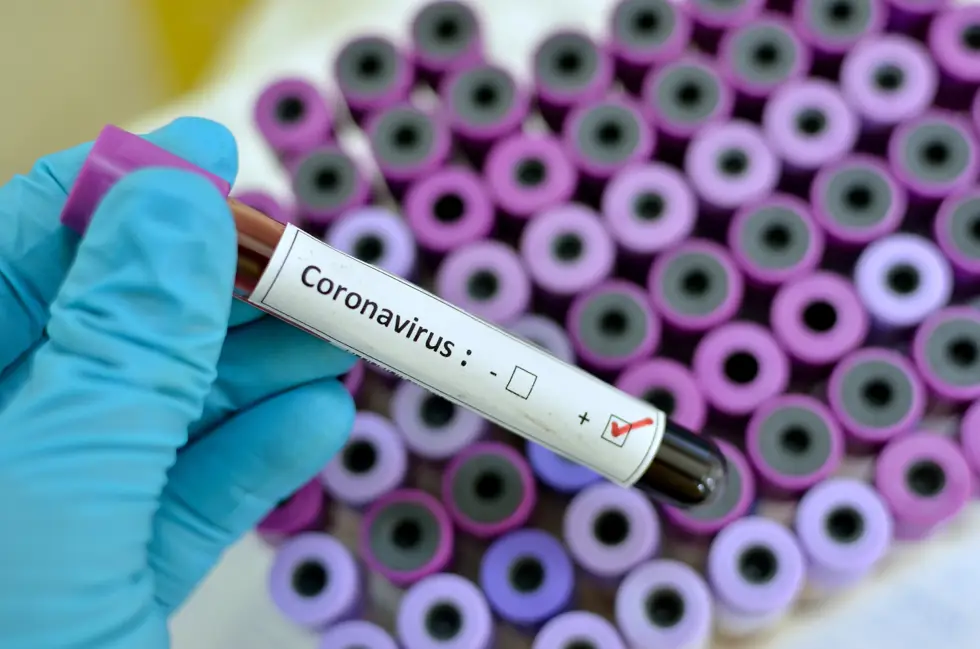In our 27th and final Motor Webinar Wednesday of 2020, we reflected on some of the key impacts of COVID-19 on motor claims.
As well as considering key impacts of the global pandemic, we discussed other important developments including those relating to the Whiplash Reforms, MoJ Portal claims, alternative dispute resolution, fundamental dishonesty findings and tomorrow’s vehicles.
With the pandemic continuing to present a number of ongoing challenges in the management and progression of motor claims, in this overview we explore what these, and other developments including Brexit, may mean for the year ahead.

Will 2021 bring greater certainty to the motor claims landscape?
Impact of COVID-19 on claims frequency and litigation
During the first national lockdown, road travel (including vehicles, pedestrians and cyclists) was reported to have reduced by up to 73%. Ministry of Justice (MoJ) Portal claims fell by 27% for the same period last year, with a 42% reduction in road traffic accident claims generally.
Whilst there have been fluctuations in road use as restrictions have altered, haulage, logistics and delivery drivers have continued to be present throughout and we have seen an increase in claims in that area.
Despite reduced road use at various stages throughout the year, the occurrence of serious road traffic accidents has continued. Publication of reported road casualties in Great Britain (for the year ending June 2020) has been deferred until March 2021, as a result of delays in the submission of data due to the pandemic.
The pandemic has presented a number of challenges in the management and progression of claims. Social distancing measures and prioritising delivery of healthcare over medico-legal work, has understandably resulted in the cancellation of medico-legal appointments. In addition, remote/virtual examination is not always feasible. We have also seen delays in accessing rehabilitation and treatment, which in some cases has meant that optimal recovery has not been achieved or has been delayed.
Technology has enabled a number of remote court hearings and trials to take place, however an ever-increasing backlog of cases is now being seen, with consequent increase in costs. The MoJ has reported an increase of five weeks for small claims track matters to get to trial and three weeks for fast track and multitrack. However, our own tracking shows that trials that were adjourned this year have been pushed back by considerably longer than this.
Credit hire and repair
The global delay and shortage in getting car parts and reduced number of repair staff have increased costs for repair, with a knock-on effect on credit hire and repair claims. A trend we anticipate will continue in 2021.
Loss of earnings
We anticipate the impact of the pandemic (particularly with furlough) on claims for loss of earnings for all claim levels, will be a developing area of contention. The extent to which a claimant would have been affected by the national and global economic downturn in any event will be a key consideration and may in some cases require expert employment evidence.
We anticipate there will be an increase in Blamire approaches as opposed to the application of Ogden when calculating future losses, because of those uncertainties.
Provision of treatment and rehabilitation
Remote solutions for the provision of treatment, such as cognitive behavioural therapy have helped mitigate against the challenges in accessing treatment and rehabilitation during the pandemic. This may result in an increasing willingness by claimants to consider and adopt ‘caretech/healthtech’ solutions.
Related items:
- Personal injury hearings during the COVID-19 pandemic - the new normal
- Coronavirus - impact on UK and Ireland injury claims
- COVID-19: mitigating against repair delays and extended credit hire periods in RTA claims
- COVID-19: the civil court system and practical implications for road traffic accident litigation
Tomorrow’s vehicles
Automated lane keeping technology
The UK Government has recently consulted on proposals which could lead to the legalisation of “lane keeping” technology and allow drivers to relinquish control of a vehicle. In response to the Call for Evidence on the Safe Use of Automated Lane Keeping System (ALKS), which closed on 27 October 2020, we have emphasised that consumer confidence in the technology, including several measures to ensure users of this technology are fully educated, informed and aware on the operation and safe use of the system, will be key.
The current regulatory framework for ALKS vehicles falls under the AEVA (Autonomous and Electric Vehicles Act 2018). However, we have raised concerns over AEVA’s suitability. The AEVA was a preliminary piece of legislation that was designed to ‘kick-start’ this area, and uses very broad terms, which are difficult to apply to the very specific driving environment set out in the proposals.
Part 3 of the Law Commission consultation on automated vehicles
The third and final part of the review into the proposed regulatory framework for automated vehicles by the Law Commission of England and Wales and the Scottish Law Commission was published on 18 December 2020. Closing on 18 March 2021, the third consultation paper sets out proposals, drawing on the responses received from a wide range of consultees to the earlier stages of the review. We have provided an overview of some of the key issues that we have raised in our response to Parts 1 and 2.
Related items:
- Kennedys warns government over obstacles ahead for autonomous vehicle technology trials
- Regulation of automated passenger-only transport services must be sufficiently flexible
- Collaboration is key to safe regulation of autonomous vehicles
E-scooters and other micromobility vehicles
Following a Government consultation, a number of e-scooter rental trials are now underway throughout the UK and due to last up to twelve months. The Department for Transport also consulted on the potential regulatory framework for e-scooters and micromobility vehicles more widely.
In response to the call for evidence we emphasised that a cautious approach is necessary to ensure that these innovative new vehicles are introduced in a safe and structured manner on to the road transport system. How e-scooters are classified/defined is a key issue and central in determining the regulatory framework. Publishing the outcome of the consultation and summary of responses in November, the report references the trials and the assistance these will provide in helping to address issues raised by the Transport Select Committee. The next steps include continuing to engage with stakeholders to understand what regulatory changes may be needed.
Related item:
2021 – what will it hold for motor claims?
- As the difficulties caused by the pandemic continue, and particularly as we are now in a further period of lockdown, we anticipate that many of the issues referred to above will remain for some time yet.
- We also envisage an increase in claims being dropped out of the MoJ Portal, with COVID-19 related reasons likely to be increasingly cited.
- Civil claims with a European cross border element have been commonplace for years, whether as a result of accidents involving European drivers in the UK or UK nationals being involved in accidents in Europe. Those involved in the handling of the resultant claims will be well versed in the regime set out by Brussels I Recast Regulation and Rome II. There were some occasional exceptions to keep us on our toes but generally there was a logic as to where claims could be brought, whether an insurer could be sued directly and which law applied.
- At 23.00 on 31 December 2020 that all changed and with it went the (relative) certainty of the Brussels/Rome II regime. For further details please see the links below to articles in which we have explored the key changes and practical implications.
Related items:
- For claims approaching two and a half/three years post-accident, ahead of the implementation of the Whiplash Reforms (recently pushed back to May 2021) we anticipate a spike in claims being issued and served in the early part of 2021. Historically, previous reforms and changes in protocols have resulted in similar trends.
- It could be easily argued that a longer delay, especially mid-lockdown, is required and there is merit to that argument given there has been an absence of detail provided since the previous delay was announced and we can only hope that more detail is released swiftly.
- Some had of course hoped that the reforms may be kicked into the long grass but from the tone of the statement made by the Lord Chancellor and Secretary of State for Justice on 11 January 2021 the intention is certainly there to push forward with the reforms.
- When implemented, we anticipate that interpretation of the definition of a whiplash injury under the reforms and the accompanying rules, will result in satellite litigation. We also expect physiotherapy and rehabilitation to be particular areas of contention, as well potentially how credit repair and credit hire interact with the new portal.
- We may also see claimant representatives entering into damage based agreements with Credit Hire Organisations or rehabilitation providers. A close review of Copley intervention letters will be particularly important to ensure appropriate protection.
Related items:
- The news of the Whiplash Reforms being delayed by one-month may have overshadowed another significant piece of news on 11 January 2021 with Sir Geoffrey Vos taking up his position as the new Master of the Rolls. Sir Geoffrey Vos is a long-time advocate for all things ADR and we could certainly see ADR being pushed further within the case management aspect of claims following this new appointment.
- For many years the South Coast courts have required some attempt at mediation and Sheffield County Court are now inserting such orders in Small Claims. With the challenges that lockdown brings and the obvious challenges for in-person hearings, a move to remote ADR would suit all parties and should be encouraged.
- Allegations of Fundamental Dishonesty have continued and defendant insurers will be heartened by some appeal decisions in 2020, where the original findings that the dishonesty found was not fundamental were overturned and the claims dismissed. We anticipate that the issue will continue to be raised and findings of fundamental dishonesty made, both in relation to lower and higher value claims.
- In light of the Court of Appeal ruling in this case, close consideration of MoJ Portal claims both at the pre-litigation and post-litigation stage, where stays have been granted, will be particularly important. As strategies for requiring disclosure of medical evidence and financial loss evidence strengthen, we anticipate satellite litigation developing in this area.
Related item: Court of Appeal overturns strike out decision
- With the increasing adoption and use of new types of vehicles, such as e-scooters, and how they are used, we expect to increasingly see challenges from insurers on motor insurance coverage issues i.e. whether they are the actual insurer.
- As advanced driver-assisted systems or ADAS – for example, automated parking, emergency braking etc - become increasingly prevalent, we anticipate in the next year or two that we will see these featuring more in issues relating to liability.
Coronavirus (COVID-19)

 United Kingdom
United Kingdom